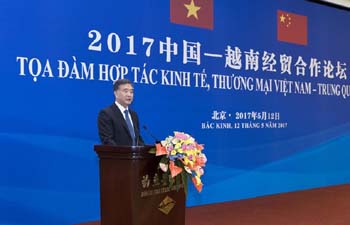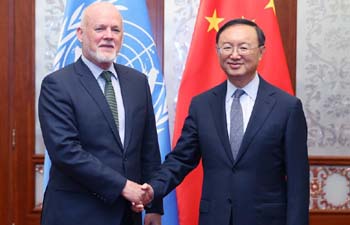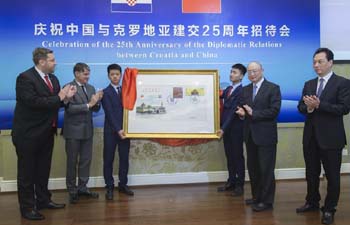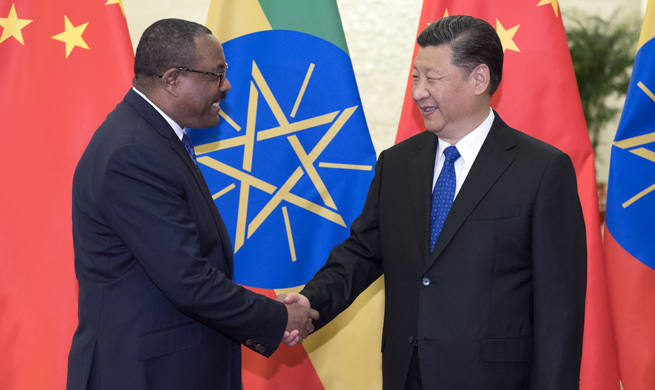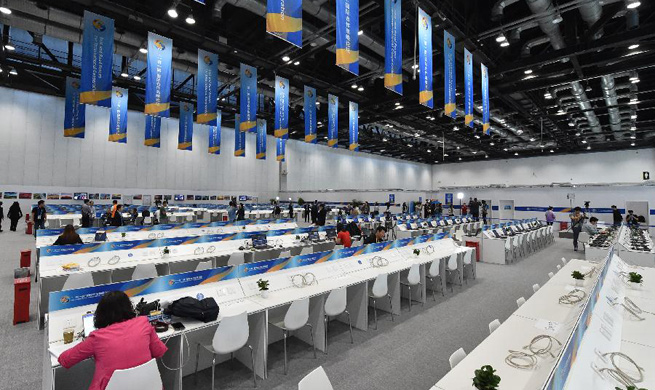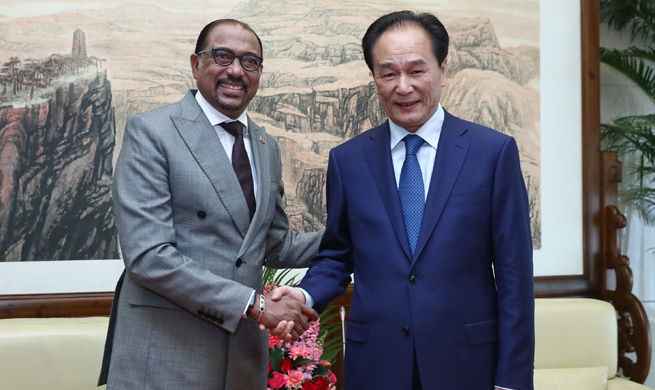BEIJING, May 13 (Xinhua) -- Located along the China-Kazakhstan border in Xinjiang Uygur Autonomous Region, Khorgos has long been a crucial port for Chinese trade with Eurasian countries.
However, few know that the border city, with a population of 85,000, is home to over 600 film companies, many of which are owned by major Chinese film franchises and directors.
Favorable policies, such as low corporate income taxes, have attracted companies to the area and helped them develop, according to Wang Zhicheng, deputy head of the provincial administration of radio, film and television.
Companies based in Khorgos have generated over 4 billion yuan (580 million U.S. dollars) in box office sales, according to industry estimates.
The city epitomizes the development of film industry along the Belt and Road.
As the Belt and Road Forum for International Cooperation is set to kick off on Sunday in Beijing, with issues like economic cooperation playing a main role, the film industry is not shying away from the spotlight.
The 2017 Beijing International Film Festival, which opened on April 16, featured a Belt and Road section for the first time. The week-long festival, celebrating its seventh anniversary this year, screened 13 films from Belt and Road countries including Poland, Iran and the Philippines.
"Film is a crucial part of cultural exchange under the initiative," said Zhang Hong, vice president of China Film Association.
"Interaction between people from the participating countries relies on the mutual understanding and respect of different cultures," he said. "This can be achieved via film."
In recent years, China has strengthened film industry cooperation with countries along the routes, with more co-produced projects hitting the screens.
The country has signed agreements on film and television cooperation with 15 countries, vice director of the State Administration of Press, Publication, Radio, Film and Television (SARFT) Tong Gang told a press briefing on Thursday.
In April, China National Film Museum announced that, starting this year, it will work with other Belt and Road countries to hold annual film events, including screenings, awards and exhibitions.
"The initiative has boosted China's film industry, and will drive its next boom," said Zhang Yiwu, professor with the Peking University.
Controversy over "The Great Wall", a recent blockbuster co-produced by China and the United States, which starred Matt Damon, revealed that the Chinese film industry has a long way to go.
Despite raking in over 1.17 billion yuan in box office sales, the film drew much criticism around the country for flaws in its plots, and a strange mixture of Chinese culture and Hollywood filmmaking.
However, for others, the film blazed a trail on a couple of levels, and deserves more recognition.
"It's the start of Chinese commercial films integrating with the international market," said a user on Weibo, China's microblogging platform. "That is the route that we must take to further integrate the cultures."
The idea resonated with Zhang Yiwu. "At least Chinese films are already eyeing the global market," he said.
"'The Great Wall' showed an effort to transcend cultural differences, which represents new ground for the industry," he said.
Lao Zhiming, general manager of Huatai United Securities, stressed the role of sharing behind the Belt and Road Initiative, suggesting the cultural sector should make the most of exchanges.
"We should introduce other advanced technologies and ideas from countries along the routes, not only film," he said. "The Belt and Road represents a platform for cultural sharing."
?







